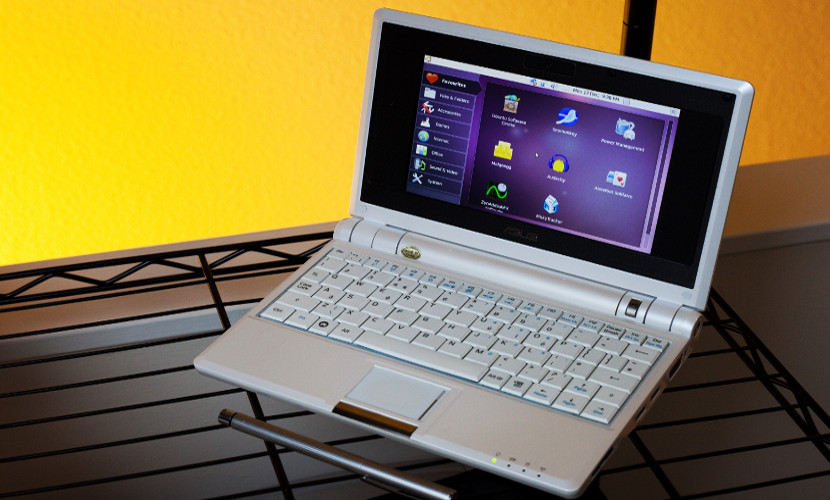
If we have a computer that is a month old, we may not need to go to this guide, however if we have a computer a little old and we noticed that our Ubuntu is somewhat lazy, perhaps it is best to consult this little guide to speed up your Ubuntu in just five steps.
These 5 steps to speed up your Ubuntu are very simple steps and simple ones that everyone can do, just read it carefully and follow them. The results are immediate and our Ubuntu will accelerate although it will not be able to reach the speed that would change the equipment for a complete computer.
1st step to speed up your Ubuntu: Startup Applications
First we have to go to Dash and then write «Startup Applications«. After pressing a window will open with a list of applications and services that start in our Ubuntu when we turn on the computer. This list can be brief and light but if the PC is slow, the list can be very long. We only have to uncheck the services that we consider unnecessary such as printer programs, virtual hard drives or another similar type of service.
2nd step to speed up your Ubuntu: Activate the graphics card drivers.
Both Unity and other desktops use many graphic effects to attract the user. Sometimes if our Ubuntu does not use the proper drivers, the system may become slow with graphics management. For this reason, the best option is to use your own drivers that improve graphics management. If we use an Intel graphics card there is no problem since Ubuntu will use the drivers that correspond to it, if we have an AMD Ati card we need to go to Settings -> Software and updates -> Additional drivers and select the exclusive option. If we have an Nvidia card, we have to repeat the previous operation but select the driver with the highest number that will be the most updated driver.
3rd step to speed up your Ubuntu: Change desktop environment.
The third step is easier than the previous ones: change your desktop. Unity is not a heavy option but there are many lighter desktops like Xfce, LxQT, Enlightenment or simply use another window manager like OpenBox or flux box. In any case, the change will be substantial and our Ubuntu will speed up quite a bit.
4th step to speed up your Ubuntu: Change the Swappiness
Swappiness is the memory process that manages our Swap partition, if we have a high value, many files and processes will go to this memory, which is usually slower than ram memory. If we keep it to a minimum, Ubuntu will allocate more processes to the faster system ram. Then for this we will change the swap value. We open a terminal and write the following:
sudo bash -c "echo 'vm.swappiness = 10' >> /etc/sysctl.conf"
5th step to speed up your Ubuntu: Clean unnecessary files
Also Ubuntu creates temporary files or junk files from failed installations, old installations, etc ... This also makes Ubuntu quite slow. To fix it, the best option is to use Ubuntu Tweak, a great tool that in addition to customizing our Ubuntu, will clean our junk file system and temporary files.
Conclusion
Keep in mind that these steps are basic but will not replace new hardware or an increase in ram memory or anything similar. It must be taken into account because these steps will speed up your Ubuntu but they will not work miracles, on the other hand there is the option to speed up your Ubuntu but other applications slow it down, especially Mozilla Firefox and Libreoffice, for these applications we write a special post that tells us how to accelerate them. Take note if this is your case. I know there are many recipes to speed up your Ubuntu even more or less What methods do you use to speed it up?
Hello I tried the step to reduce the swap but it remains the same in 60 by default help please
I'm testing ubuntu 16.04, it goes well, the bad thing is the startup, it takes about 3 minutes, windows started in 10 seconds. -SSH-keys which I remove
udo nano /etc/systemd/system.conf
Once inside the file, you have to locate the options for
DefaultTimeoutStartSec and DefaultTimeoutStopSec. Depending on the
distribution, these options can be commented (those with #
in front), so in case of finding them like this, obviously it will be necessary to
uncomment them. The default value is usually 90 seconds
(90s), which can be changed by the amount of time the user
Consider convenient. In my case, I set this time to only 5
seconds (5s).
Hello, I know that this is not the means of consultation, but I want to know how to check how many GB I can expand my ram memory. I have xubuntu 14 installed.
I have been using it for almost a month and it is luxurious, I do not imagine where I can expand the ram to my laptop
sudo nano /etc/systemd/system.conf
Once inside the file, you have to locate the options for
DefaultTimeoutStartSec and DefaultTimeoutStopSec. Depending on the
distribution, these options can be commented (those with #
in front), so in case of finding them like this, obviously it will be necessary to
uncomment them. The default value is usually 90 seconds
(90s), which can be changed by the amount of time the user
Consider convenient. In my case, I set this time to only 5
seconds (5s).